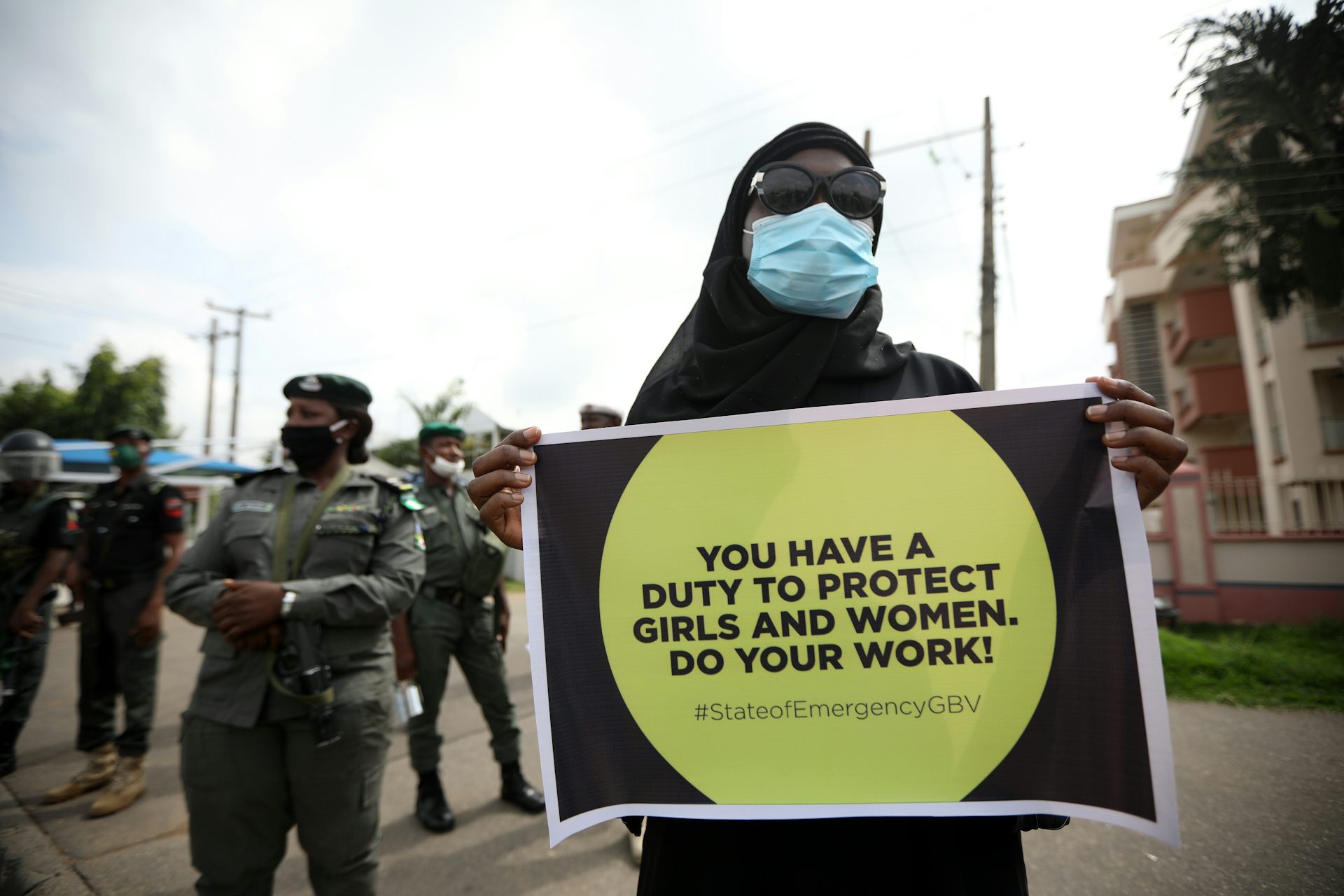
Since the 1970s feminist movement for the support of abused women under the appellation “Battered Women’s Movement”, the struggle against domestic violence has continued. In Ghana, for example, national records reveal that one-third of women have been victims of domestic violence. In Nigeria, 33% of women aged 15-49 have experienced either
physical or sexual violence in a domestic setting.
Both Ghana and Nigeria enacted laws on domestic violence in 2007. They essentially criminalised domestic violence and made police involvement mandatory. Special domestic violence units were set up in the two countries’ police institutions. The Domestic Violence and Victims Support Unit was created within the Ghana Police Service, while the Family Support Unit was established in the Nigeria Police Force.
These units are responsible for handling cases of domestic violence, prosecuting offenders and providing support services for victims. These roles are critical in breaking the cycle of violence. They should instil confidence in victims and promote the rights of women by showing that domestic violence is unacceptable and will be punished.
Several studies have examined police interventions in domestic violence by looking at the trend in domestic violence reports to police and the role of police in victims’ access to justice. These studies have established very low reportage of domestic violence to the police. They also found that a lack of police commitment hinders victims’ access to justice. But one aspect has been largely unexplored: police culture – specifically its masculinity – and how it is implicated in domestic violence interventions.
As a result we set out to study the way the police in Ghana and Nigeria handle domestic violence cases and victims. In particular, we looked at manifestations of police masculinity and its impact on policing domestic violence.
We found that although the domestic violence laws in Ghana and Nigeria aim to improve the well-being of domestic violence victims, the masculinised culture of the police impeded their success and complicated the plight of domestic violence victims. By masculinised culture, we mean traits such as force, aggression, dominance, violence and strength which are valued and celebrated in the police force. We found that these traits were continually upheld as the ideal police officer trait. Both men and women in the units displayed these characteristics.
Police masculinity
The research was conducted in six police domestic violence units in Accra, Ghana and Lagos, Nigeria. We conducted interviews with female victims of domestic violence, police officers who handle domestic violence cases and social workers with experience of police work in handling domestic violence.
The study revealed that the masculine culture of police was evident even in the training content for recruits in both the Ghanaian and Nigerian police forces.
Police personnel told us their training aimed to instil qualities such as vigour, strength, discipline, toughness, braveness and assertiveness. A police officer said:
The training comprised parade, fatigue, bodybuilding, jungle training, early morning rising, lecture, and handling of guns.
There was no training on how to handle domestic violence or gender issues although domestic violence was part of police work. Some training on handling domestic violence was offered after a couple of years, but was organised mainly by nongovernmental organisations. Some of the policemen we interviewed said the training they eventually received on domestic violence had made them more empathetic, humane, patient, sensitive and supportive of women.
We noted that the police generally viewed domestic violence as a crime involving only women. As a result, the domestic violence units in the two police institutions were considered the “feminine arm” – the women unit – of the police.
The billboards, flyers and posters in the domestic violence units featured female characters and reinforced the idea that domestic violence was only about women victims seeking redress against male violators. This was a hindrance to male victims who needed police help.
The study also revealed that the domestic violence units were under-resourced when compared with the anti-robbery and counter-terrorism units. Little attention was given to the units in terms of training and resources.
We found that police officers were often unwelcoming and unfriendly to victims. Some of them got irritated by the victims’ presence and display of vulnerability.
They often blamed, insulted or mocked victims, and sometimes ordered them out of their offices.
The findings of the study revealed that about 40% of victims abandoned their cases after the initial reports. In follow-up interviews, the victims indicated this was as a result of police hostility towards them. Victims said they found the police station a hostile environment, filled with tension. They also revealed they felt more traumatised after their encounter with police, which made them less willing to seek police assistance again.
We found that police officers shielded other police officers who committed domestic violence offences. Those accused of abuse were barely investigated.
Also noteworthy was a lack of psychosocial support for victims. Interventions prioritised criminality with minimal or no regard for the emotional wellbeing of victims. Emotional distress was considered a feminine trait.
What must be done
The practices of most police institutions in Ghana and Nigeria have reduced their ability to protect abused women, enforce the domestic violence laws and promote the rights of women.
The Ghanaian and Nigerian police should restructure police training and rework its curriculum. Gender sensitivity and effective handling of domestic violence courses and modules should be taught in police colleges. Also, training on domestic violence should be made a compulsory part of police training.
This would greatly reduce the stereotypical views on gender, minimise masculinised performance and improve police skills in handling domestic violence.
Abena Asefuaba Yalley, Postdoctoral fellow, University of Ibadan
This article is republished from The Conversation under a Creative Commons license.


